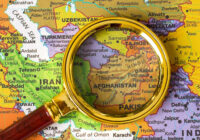A country once known for its unique culture is now infamous all over the world for producing refugees and extremists.
Afghanistan, which stands at the crossroad of the ancient Asian civilizations, contributed enormous knowledge to the world and produced great scientific minds during antiquity and the Renaissance. It is the land of distinguished scholars and philosophers like Abu Ali ibn Sina (or Avicenna) and Mawlana Jalaluddin Balkhi (better known as Rumi), well-known figures celebrated for the immense contribution they made in various fields of knowledge. Unfortunately, the long-lasting armed conflict in Afghanistan has tarnished its image: A country once known for its unique culture is now infamous all over the world for producing refugees as well as extremists.
The catastrophe of war has not only crumbled the law and order machinery of the state, but has also weakened the central government, which often fails to protect the basic rights of its people. This, in turn, has exacerbated problems like corruption, unemployment, insecurity and violence. Moreover, frequently occurring bomb blasts, suicide attacks and frontline combat operations in Afghanistan have had a negative impact on the people, both physically and mentally. The onslaught has left such a deep mark on several generations that these wounds of war will fester for years to come. Unfortunately, the daily suffering of people in Afghanistan does not draw the same attention from media that it does in other parts of the world.
Owing to ongoing insecurity, people have been forced to leave their homeland and take refuge in other countries, seeking safe places for a better life and a stable future. It is, therefore, not surprising that Afghanistan has continuously been ranked as one of the top source countries for refugees to both its neighboring states as well as Western countries. This has seriously affected the image of the country and its nationals beyond its borders. The situation has resulted in hardening of visa procedures for Afghans and so violates their basic right of legally moving from one place to another.
The ongoing conflict in the country has not only caused human injuries, but has also damaged public and private properties. The situation was worse during the civil war, before 2001, when combating jihadist groups killed and oppressed the Afghan population. In addition, public property was plundered and cultural monuments were looted and destroyed. Although the protection of public property, and cultural artefacts in particular, falls within the framework of restrictions on means and methods of warfare provided under Article 19 of the UNESCO Convention on the Protection of Cultural Property in the Event of Armed Conflict, adopted in 1954.
The devastation of the historical and cultural heritage in Afghanistan does not stem from lack of comprehensive protection mechanisms, but is a part of the terrorists’ strategy for destroying the cultural legacy of a nation in a systematic and planned way. Cultural relics and ethos are considered as a source of resilience and resistance, especially during armed conflict, because they instil hope and optimism in people. Erasing shared memories and propagating intolerance among the people of a country automatically rescinds the sense of belonging and causes disintegration of society. Besides, the preservation of cultural heritage, monuments and historically important antiquities can change the image of the country, with time, from an association with terrorism to that of tourism.
The tarnishing of the image of a country is not a one-day process, and neither is the construction of this image. Although there is no denying the fact that Afghanistan produces a large number of refugees, this crisis is often overemphasized in the media, which often fails to show the story of those people who chose to stay in Afghanistan despite of insecurity and corruption. Soldiers defending their country against terrorism, students studying both in Afghanistan and abroad, laborers and office workers toiling day and night, farmers, cultivators and businessmen and women are all patriots who are hopeful for the future of Afghanistan. But their sacrifice often fails to make news as it is overshadowed by the acts of the extremists.
To change the image of Afghanistan as a war-struck country to a culturally-rich tourist hotspot may perhaps take a long time, but the seeds must be sown now. And for this purpose both the government and its people must work hand in hand.
The views expressed in this article are the author’s own and do not necessarily reflect Fair Observer’s editorial policy.
Photo Credit: DVIDSHUB
Support Fair Observer
We rely on your support for our independence, diversity and quality.
For more than 10 years, Fair Observer has been free, fair and independent. No billionaire owns us, no advertisers control us. We are a reader-supported nonprofit. Unlike many other publications, we keep our content free for readers regardless of where they live or whether they can afford to pay. We have no paywalls and no ads.
In the post-truth era of fake news, echo chambers and filter bubbles, we publish a plurality of perspectives from around the world. Anyone can publish with us, but everyone goes through a rigorous editorial process. So, you get fact-checked, well-reasoned content instead of noise.
We publish 2,500+ voices from 90+ countries. We also conduct education and training programs
on subjects ranging from digital media and journalism to writing and critical thinking. This
doesn’t come cheap. Servers, editors, trainers and web developers cost
money.
Please consider supporting us on a regular basis as a recurring donor or a
sustaining member.
Will you support FO’s journalism?
We rely on your support for our independence, diversity and quality.






